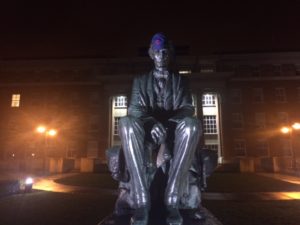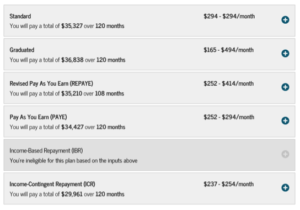26 weeks ago, my first day of the MPA program was on July 5, 2016; in 26 more weeks, I will graduate on June 30, 2017. The halfway mark of this graduate program seems like an ample opportunity to sit back and reflect on my time so far.
I Am a Truman Scholar
Through a combination of hard work and sheer good luck, I was awarded the 2015 Harry S. Truman Scholarship. Being a Truman Scholar has made it possible for me to embark on a career in public service thanks to the network, guidance, and support the Truman Foundation provides.
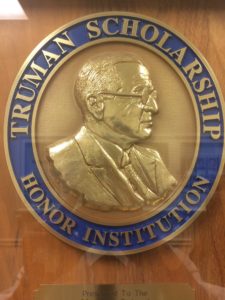
Thanks to a summer program hosted by the Truman Foundation, I met Christine Omolino – the Director of Admission and Financial Aid for Public Administration and International Affairs at the Maxwell School. Christine made me aware of the benefits of pursuing my MPA degree at Syracuse. Being able to talk with Christine made me feel comfortable committing one-year of my life to a graduate program dedicated to molding public service leaders.
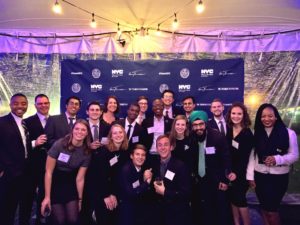
Looking back, I am incredibly thankful for the Truman Foundation. My fellow Truman Scholars constantly amaze me and serve as a reminder that we have a responsibility to carry our lives with the same values of courage, integrity, and humility embodied by President Truman.
I am a Maxwellian
26 weeks goes by fast. I don’t remember every lecture nor do I remember every luncheon I have attended. What I remember is the friends and skills I have made over the first half of my MPA program.
Thanks to Professor Julia Carboni’s nonprofit management course, I know how to create a business plan for a nonprofit. More than any other class, the weekly exercises and the final project forced me to focus on myself as a writer, teammate, and public speaker. Through the detail-oriented feedback I received from the case memos and peer evaluations, I believe I made significant strides towards my goal to be great at all three roles.

Thanks to Professor John Palmer’s course, I know how the “sausage” that is the federal budget gets made. I know the difference between Medicare and Social Security Trust Funds. But more important to me is being able to communicate these issues to my friends and family.
Thanks to Professor Jesse Lecy’s course, I know that I love talking about data science with other data scientists. Thanks to online platforms like GitHub, I can share my code with the world and learn from others. Whether it is learning how to make a dashboard load faster or designing a dynamic histogram, I am amazed at the openness of the data science community.
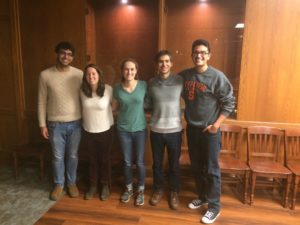
It’s Been a Great Year
I can say the degree in six months will be a great accomplishment. Yet, the superior accomplishment is knowing my MPA degree has trained me to be a better leader and teammate. As a much needed aside, thank you, 2016. You were the year that finally delivered a Chicago Cubs’ first World Series Championship in 108 years. It was well celebrated here at the Maxwell School with President Lincoln and I.
